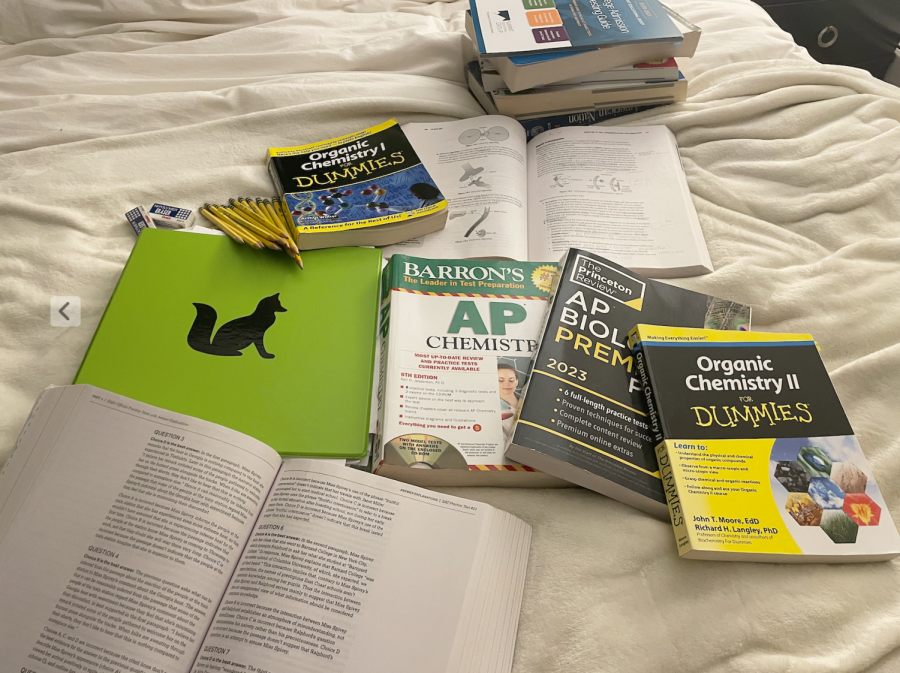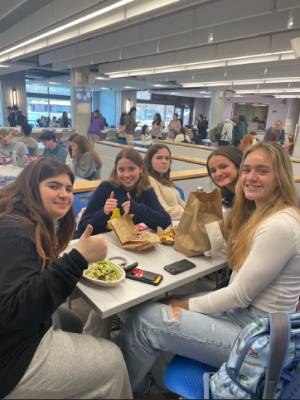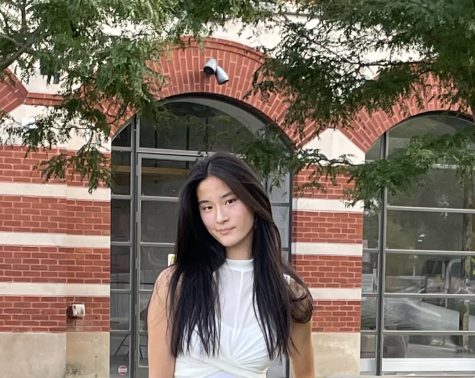Looking Back at the Studying for the APs: Cram or Cruise?
High school students discuss their experiences of taking and studying for the Advanced Placement Exams.
Study guides and prep books are useful resources for self-studiers and those who are taking the course alike – Photo by Fiona Bischoff
June 6, 2023
During the first two weeks of May, many Darien High School students took Advanced Placement exams. Lasting from Monday, May 1st to Thursday, May 11th (excluding make-up days), students who were registered for one or more exams were excused from classes for their respective testing day(s), and sat down for 8AM and 12PM exams— many had two exams in one day.
For many juniors, including myself, this was our first time taking AP exams; naturally, like everyone else who was experiencing these intense, three to four hour long tests, one of my most looming concerns was studying— How much of it I would have to do and how extensive? Would I have to reteach myself the whole curriculum, or at least the earlier units? Or should I cross my fingers and hope that it came back to me when sitting in that gymnasium fold-up chair?

Of course, each exam is different, and I believe every student accounted for that: from what previously enrolled students said about the course, to the pass rate and score breakdowns of each individual exam, to how much we cared about a specific course over another— these were all factors, at least for me, when preparing for the AP Exams.
Enrolled in three APs with extracurricular activities after school nearly every day, I knew that in order to stay on track, I should make a schedule or plan for each of my exams. Before April break, I was creating a calendar and studying schedule while also mentally preparing for what was in store.
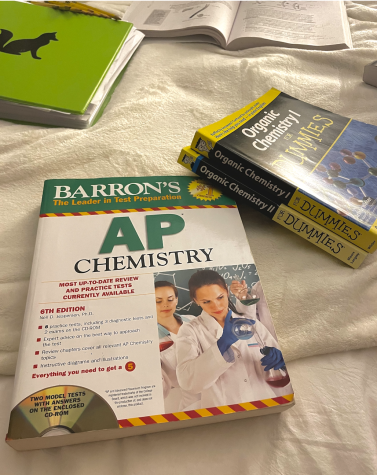
Clearly, I was a little more than stressed, and I wanted to do well. And despite having practice exams, released exams from previous years, and predictions from teachers of what this year’s tests would look like, I still felt torn between cramming and doing intensive studying or just free-falling and trusting myself, while still doing apt review.
But here’s the thing:
Looking back with hindsight, neither of those two options were the “right” one in my mind. And of course, “doing well” or a “good score” is relative to everyone, which is why the best thing that one can do to achieve success is to make good judgment calls, specific to yourself.
Yet, while we are all different people with varied expectations and things going on in our life, one thing became clear from talking to multiple people, in different grades, courses, and with individual work ethics. That studying for AP Exams should not be an enduringly painful endeavor, nor is deeply studying really worth it. That is not to say that you can put in zero work and expect a satisfying turnout, however I think I lost sight of my confidence, due to not knowing what to expect.
Senior Sophia Chen offered some logic behind this idea. She said, “I feel like if you’re picking up each unit and paying attention before each unit test, by the time of the actual AP, you are more than prepared. We definitely learn more than we need to know so studying for the APs isn’t bad if you have stayed on top of it throughout.”

To many of us, the exam is not going to come easy, nor is a 5 going to just be handed to us; However, I feel that most courses approach the material in a manner extensive and cumulative enough and that it does not require relearning, or even deeply studying everything. In fact, I highly advise against doing extremely deep reviews; Trying to cram so much material results in being unable to retain it, and chances are it’s just going to make you feel more overwhelmed, and easily confused with content.
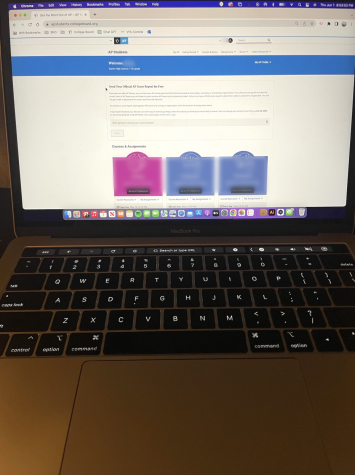
Additionally, the method with which you study is an important consideration. I have always been someone to review my whole entire notes document, and memorize it front to back for unit tests. The thing is, this method is often not what you want to be doing with APs. APs are about understanding the test format and the objective of the test creators; Ask yourself, “What does the College Board want me to be taking away from this course at the end of the year?”
With that said, practice tests were mostly the extent of what I did to study. Surely, with AP Biology, for example, I reviewed some concepts that I had forgotten about or was unclear with. But the majority was doing practice application questions. This allows you to not only get a sense of the pace and difficulty of the questions, but it allows you to get inside the test’s head, in a way.
However, senior Sophie Xu brought up an important point, that “ history vs STEM classes are going to be different.” While History classes may be more content and recall heavy, STEM classes may lean towards applications of students’ cumulative understanding of a topic. Xu took six APs this year, and took all six of the exams.
Given that, Xu said, “Studying was different for every AP.” She also concedes that each year, the amount of studying was different. She studied more in her Sophomore and Junior year for her APs than Senior year, and that could be due to several factors. The first one being, she realized how and how much to do so: “I didn’t fully know how to study sophomore year so I didn’t study AP Euro at all,” Xu said. Meanwhile, I found myself doing the opposite. In short, it doesn’t hurt to be overly prepared, but there is one final factor to address, which is health.
Emotional, physical and mental health— they’re all important. You hear it all the time, but I cannot stress how helpful taking care of my body and my brain was during the last few weeks of April and first few of May. Xu says, “Sleep! Study for sure and study over time but the week before, start sleeping as much as you can. Eat healthy as well!”

Taking four hour tests seems daunting, and it is definitely unlike something you’ve probably done before. However, once I was in the testing room, some of the tests and sections went really fast, but I learned that it fully depended on whether or not I could focus, which stems from whether or not I slept and ate properly.
More often than not, teens have been talking about feeling burnt out, unmotivated, or tired. And that is completely okay. This mutual feeling can become very consuming, and with that comes the responsibility to be able to manage it, and respond to it. I feel that when it comes to studying for these exams, it is certainly not easy.
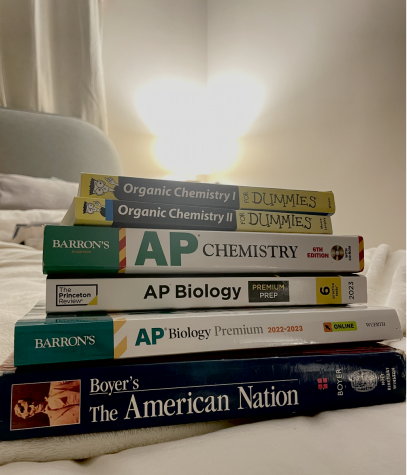
Of course, wanting to do well on an exam requires a lot of self-exploration; Throughout high school, we learn how to manage our time, stress, priorities, and material; We observe how we perform best, in what environments and time conditions. And so, while one’s success is very contingent on knowing themselves and making responsible judgments, oftentimes we might not realize how much is too much, or we may hold ourselves to a high standard. Which, although that is arguably good, it often creates a pressure, then in turn leading to stress and overworking oneself.
Prioritizing your mental health is not discreditable, nor is it the wrong decision. Whatever choice you choose to make, especially with consideration of your well-being, the final thing that I’ve taken away from this experience is to not hold it against yourself— or at least, not too harshly. I have always been someone to stand behind good, hard, integral work. Your dignity, self-reliance, and perseverance are really something that you learn to harness in high school, but it is also hard to know when to cut some slack with yourself.

